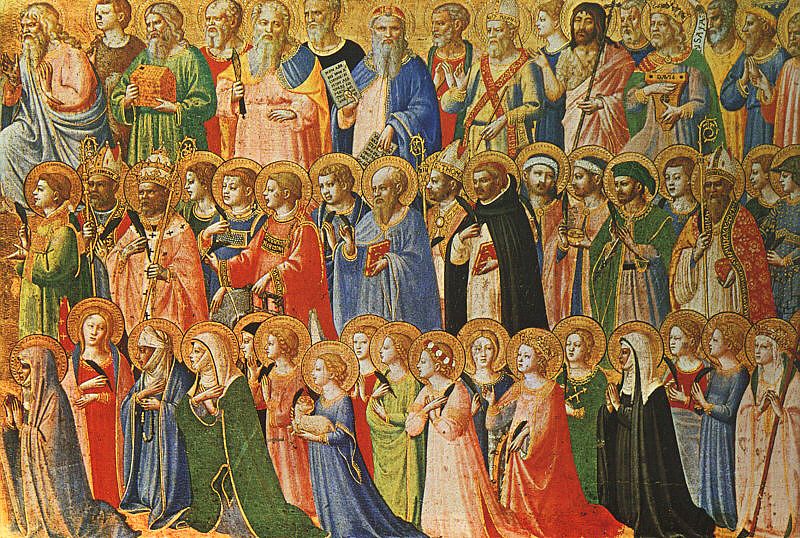
All Saints vs. Halloween
10-25-2020Letter from the PastorFr. Don Kline, V.F.Dear Family,
Peace and Joy in Our Lord Jesus!
I’m sure you have seen the rather macabre Halloween scenes in front yards around your neighborhood. The fascination with evil is troubling. The way our culture currently recognizes Halloween is more than scary… it is wrong. Let me attempt to clarify a few things. Next week we will celebrate the Feast of All Saints, which is celebrated every November 1st. This celebration dates back to the fourth century. It was originally called the Feast of All Martyrs. The words “martyr” and “saint” originally meant basically the same thing — someone who is a witness to Christ even unto death.
The early Christians usually placed the body of the martyr, someone who had been killed for the faith, in a tomb that was easily accessible. Then on the anniversary of that martyr’s death, the faithful would come and pray and celebrate the Eucharist on or near the tomb of this Christian hero or heroine. That is why many altars have a relic of a saint located in the altar. Eventually, these celebrations were held in local churches to commemorate not just one martyr, but all who had given their lives for the faith. By the fifth century, this feast of “All Saints” was held on the Friday of Easter week.
In the ninth century, Pope Gregory the IV changed the date to November 1st. In 1484, Pope Sixtus IV established November 1st as a holy day of obligation. Those Christians who endured torture for the faith, but were not killed, were treated with great respect. Therefore, their local church honored those who led heroic and faithful lives as Saints after their deaths.
So, what is Halloween? It is the vigil for the Feast of All Saints. It is also known as “All Hallow’s Eve.” The word “Hallowed” means holy (as in “hallowed be Thy name”). The abbreviated name for evening became “e’en” and this is where we get the name “Halloween.” The day before All Saints is called Halloween even in the secular world. The name is Christian. Halloween means the eve of All Hallows, the eve of All Saints.
Halloween, as a pagan event, does date back to the time before Christianity. It was a pagan Celtic feast. The pagans believed that after sunset on Samhain, which we now called Halloween, the spirits of the dead and evil spirits roamed the skies seeking to harm humans, especially if the dead had been harmed by them. To protect themselves people disguised themselves by dressing up in costumes and carried lights inside turnips.
The Church, in her desire to always stamp out evil, has turned this pagan feast into a Christian feast by moving All Saints to November 1st, to coincide with the pagan celebration. Children have fun on Halloween now and it is OK but it would be a tragedy if children did not know the Christian feast at this time, the feast of All Saints. So if your children are celebrating Halloween and know nothing about All Saints, please explain this beautiful Catholic holy day to them.
We are Christians, so let us not celebrate as pagans. Let us celebrate the Feast of All Saints. Rather than concentrating on witches, ghosts, and goblins, let us think on those who have gone before us, having persevered in holiness and faithfulness, setting before us the way of salvation for our souls. This is a time to celebrate their lives and give our children real heroes and heroines that they can look up to and pattern their lives after.
God Bless,
Fr. Don Kline, V.F.